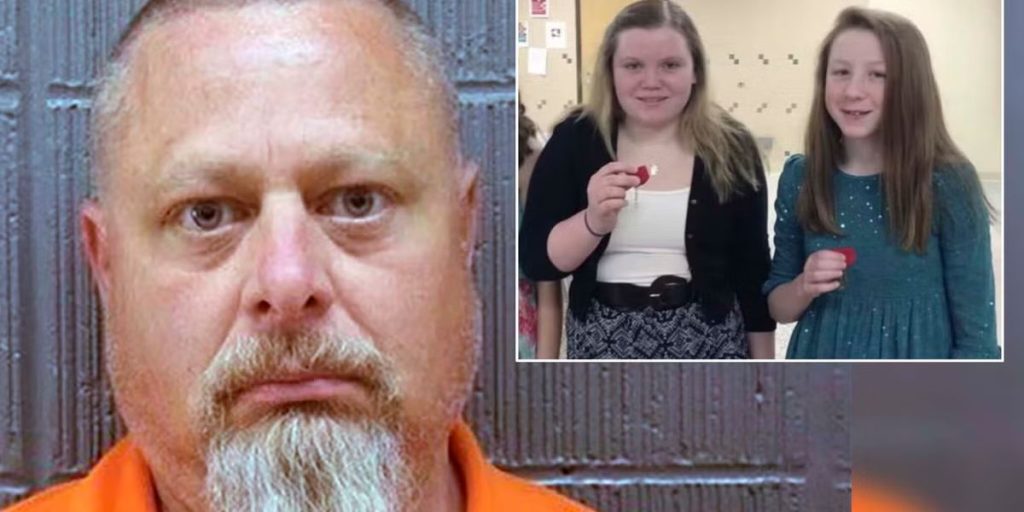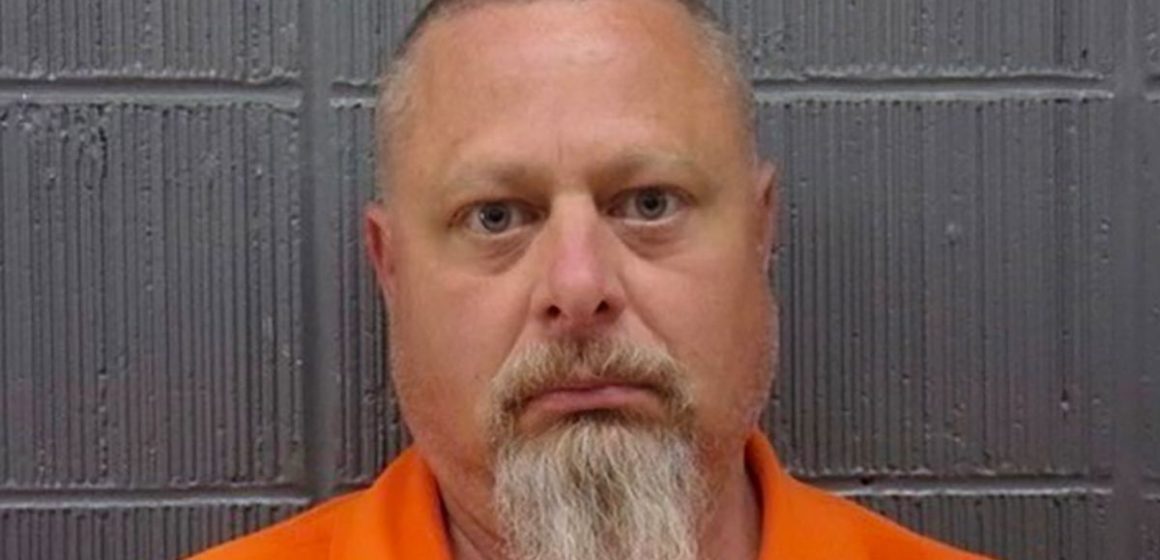An Indiana man convicted in the 2017 murders of two teenage girls who went missing during a winter trek was sentenced to a maximum of 130 years in prison Friday in the case that has long cast a pall over the kids’ modest community of Delphi.
Allen, 52, was convicted on November 11 of the murders of Abigail Williams, 13, and Liberty German, 14, also known as Abby and Libby. A jury convicted him on two charges of murder and two counts of murder while trying or committing kidnapping.
Allen County Superior Court Judge Fran Gull, the case’s special judge, sentenced Allen on two of the four murder counts, imposing a maximum sentence of 65 years for each count to be served consecutively. The sentencing session was less than two hours long and included victim-impact comments from six of the teens’ relatives.
Following the hearing, Jennifer Auger, one of Allen’s defense attorneys, informed reporters that they intend to appeal and seek a new trial.
“Our thoughts and prayers are with the families of the victims. “What they went through was unimaginable,” Auger stated. She said that the defense intends to provide a more thorough statement later, “but today is not the day for that.
The Associated Press left messages for Allen’s attorneys on Friday, requesting additional information on his sentencing and plans for an appeal.
Allen, who has maintained his innocence, faced 45 to 130 years in prison for the murders of the Delphi teens, who were discovered dead in February 2017, their throats slashed, one day after they went missing while hiking on a day off from school.
Allen also lived in Delphi, and when he was caught in October 2022, more than five years after the killings, he was working as a pharmacy technician in a pharmacy just a few steps from the county courthouse, where he would ultimately stand trial.

His weeks-long trial included repeated delays, a leak of evidence, the removal of his public lawyers, and their reinstatement by the Indiana Supreme Court.
The case, which featured tantalizing evidence, has long piqued the interest of true-crime lovers.
With Gull’s long-standing gag order in the case lifted at the end of Friday’s sentencing, police and prosecutors staged a news conference to praise detectives for their assistance in Allen’s arrest and prosecution.
“There is no doubt that justice has been served, and today is the day,” stated Carroll County Sheriff Tony Liggett.
He and others praised the efforts of a retired state government employee who volunteered in March 2017 to assist police in organizing tips received as part of the inquiry — and who identified a crucial piece of information that led detectives to Allen.
Kathy Shank said at trial that in September 2022, she discovered a misplaced “lead sheet” stating that two days after German and Williams’ bodies were discovered, a man phoned authorities and claimed to have been on the trail the afternoon the girls went missing. His name was wrongly entered as Richard Allen Whiteman and tagged “cleared,” according to Shank.
She discovered that the man’s name was Richard Allen and remembered seeing a man on the trail at the same spot and time as a young girl.
“I thought there could be a correlation,” Shank told the court, adding that she informed officers of her discovery.
At Friday’s news conference, Liggett congratulated Shank for making such an important discovery and bringing it to the attention of investigators.
“When she would come across something she didn’t know she would always bring that to an investigator and every time she brought us something and said, ‘Did you know this?’ we knew it — except for the tip that she brought us that got us here today,” according to him.
Gull, the special judge who presided over Allen’s trial, and the jury were both from Allen County, in northeastern Indiana.
The seven women and five men were sequestered throughout the trial, which began Oct. 18 in Delphi, the girls’ hometown of approximately 3,000 people 60 miles (100 kilometers) northwest of Indianapolis.
Allen’s trial followed numerous delays, a leak of evidence, the withdrawal of his public defenders, and their reinstatement by the Indiana Supreme Court.
The case, which featured tantalizing evidence, has long piqued the interest of true-crime lovers.
On February 13, 2017, a relative dropped off the teenagers at a hiking route close to Delphi. The eighth graders did not arrive at the agreed-upon pickup spot and were reported missing that evening. Their bodies were discovered the following day in a wooded area near an abandoned railroad trestle that they had crossed.
Carroll County Prosecutor Nicholas McLeland told jurors in his closing arguments at Allen’s trial that Allen, armed with a revolver, pulled the youngsters off the hiking trail and planned to rape them before a passing van forced him to modify his plans and cut their throats. McLeland stated that an unspent bullet recovered between the teens’ bodies “had been cycled through” Allen’s.40-caliber Sig Sauer weapon.
An Indiana State Police weapons specialist informed the jury that her study linked the round to Allen’s handgun.
McLeland claimed Allen was the man seen pursuing the youngsters across the Monon High Bridge in a blurry cellphone video German had captured. Allen’s voice can be heard in the video encouraging the youngsters to go down the hill after crossing the bridge.
McLeland also stated that Allen had repeatedly confessed to the killings – in person, over the phone, and in writing. In one of the recordings he gave to the jurors, Allen could be heard telling his wife, “I did it. “I killed Abby and Libby.”
Allen’s defense claimed that his admissions were untrustworthy because he was suffering from a severe mental health crisis while being held in isolation, monitored 24 hours a day, and mocked by other inmates. A psychiatrist called by the defense testified that months of solitary confinement can cause delirium and psychosis.
During his closing statements, defense attorney Bradley Rozzi stated that no witness unambiguously identified Allen as the guy seen on the hiking trail or the bridge the afternoon the girls went missing. He also stated that no fingerprints, DNA, or forensic evidence link Allen to the murder scene.
Reference: Indiana man sentenced to the maximum of 130 years in prison for 2017 killings of 2 teenage girls



Leave a Reply